Imagine this: The bell has just rung, you have 10 minutes of quiet, and you want a fast brain break. You look for unblocked games and find blocked pages, slow-loading clones, and sketchy pop-ups. Here’s a smarter, more responsible, and rule-abiding way of thinking when it comes to accessing Unblocked Games 76—no shady workarounds that create problems bigger than the ones they’re trying to solve.
What “unblocked” really means on school and work networks
“Unblocked” doesn’t mean “unlimited.” It refers to games that operate in a web browser and are frequently available on networks that block access to game sites. Networks block categories to preserve learning or work bandwidth and reduce distractions and risk factors. Imagine a school or office network like a museum: you’re welcome to enjoy what’s on display, but you can’t rearrange the exhibits. The plan is to play where and when it’s allowed — and make that experience as smooth, safe, and respectful as possible.
- What “unblocked” really means on school and work networks
- The ethical access ladder for playing on shared networks
- Step 1: Personal device on an allowed network
- Step 2: Request permission in shared spaces
- Step 3: Strategize alternatives if it’s not allowed
- Safer, cleaner play practices when access is allowed
- Use a special browser profile
- Tame pop-ups and notifications
- Keep it lightweight
- Try offline‑ready web games
- How to find good browser games without fake links
- How To Improve Game Performance And Battery Life In Browser Games?
- All That Privacy and Security You Actually Get
- A Simple Balancing Model: Playing the Limitations
- The “green light” test before you try it
- Common questions answered about unblocked web games
- Bottom line: play responsibly and keep it lightweight
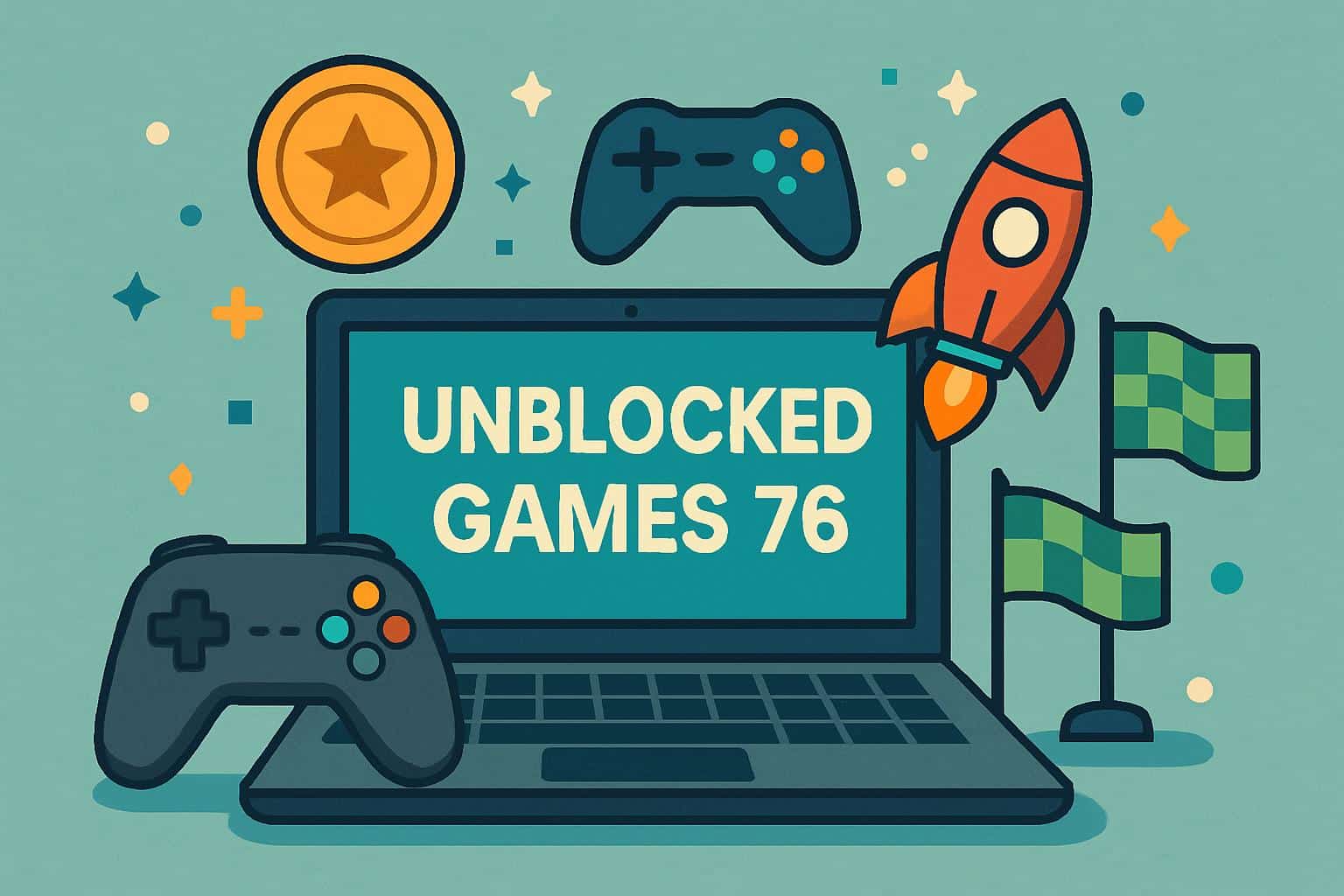
The ethical access ladder for playing on shared networks
Play your decisions out with this three-step ladder. Only climb as high as your situation will permit.
Step 1: Personal device on an allowed network
Perhaps the most straightforward, as well as a clean option — use your own device on a network that allows gaming (for example, at home with family rules). That way, technology does not come into conflict with policy and there are fewer blocked pages. If you are under 18, follow whatever your family’s guidelines may be.
Step 2: Request permission in shared spaces
Always ask on school or work devices and networks. Some systems can accommodate short breaks, stress-relief games, or whitelists of approved games. A quick query with a teacher, school librarian, or manager can help transform “maybe” into “you’re in!” It’s almost always better to have permission than not.
Step 3: Strategize alternatives if it’s not allowed
If the answer is no, accept it. You can play offline puzzle apps on your phone during allowed times or simple pen-and-paper logic games, too. The upside: no pop-ups, no sluggishness, and zero policy risk.
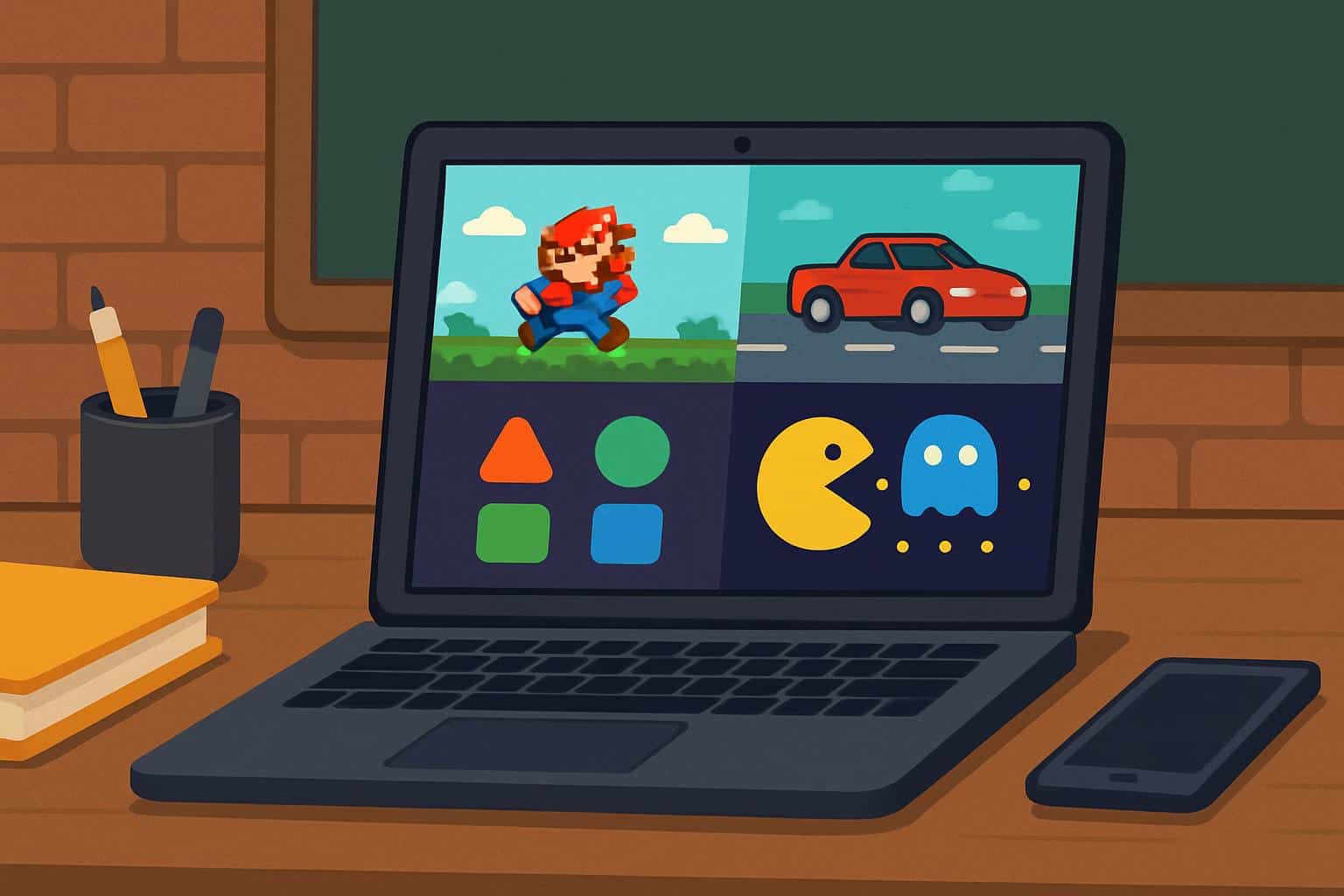
Safer, cleaner play practices when access is allowed
When you’re on a network where playing is allowed and you’re willing to use the device, get everything set up with these guidelines so your experience doesn’t slog or get sudsy in the risk department.
Use a special browser profile
Make a separate browser profile for gaming. This protects game cookies, history, and saved passwords from getting mixed up with your school or work accounts. Many modern browsers make it possible to add profiles with a name and an icon. It’s a neat line: study in one profile, play in the other.
Tame pop-ups and notifications
Turn on your browser’s built-in pop-up blocker and restrict site notifications to “Block.” The goal is to minimize distractions and the chance you will click false alerts. If a page requests permission to show notifications, click “Block” unless you truly trust the page.
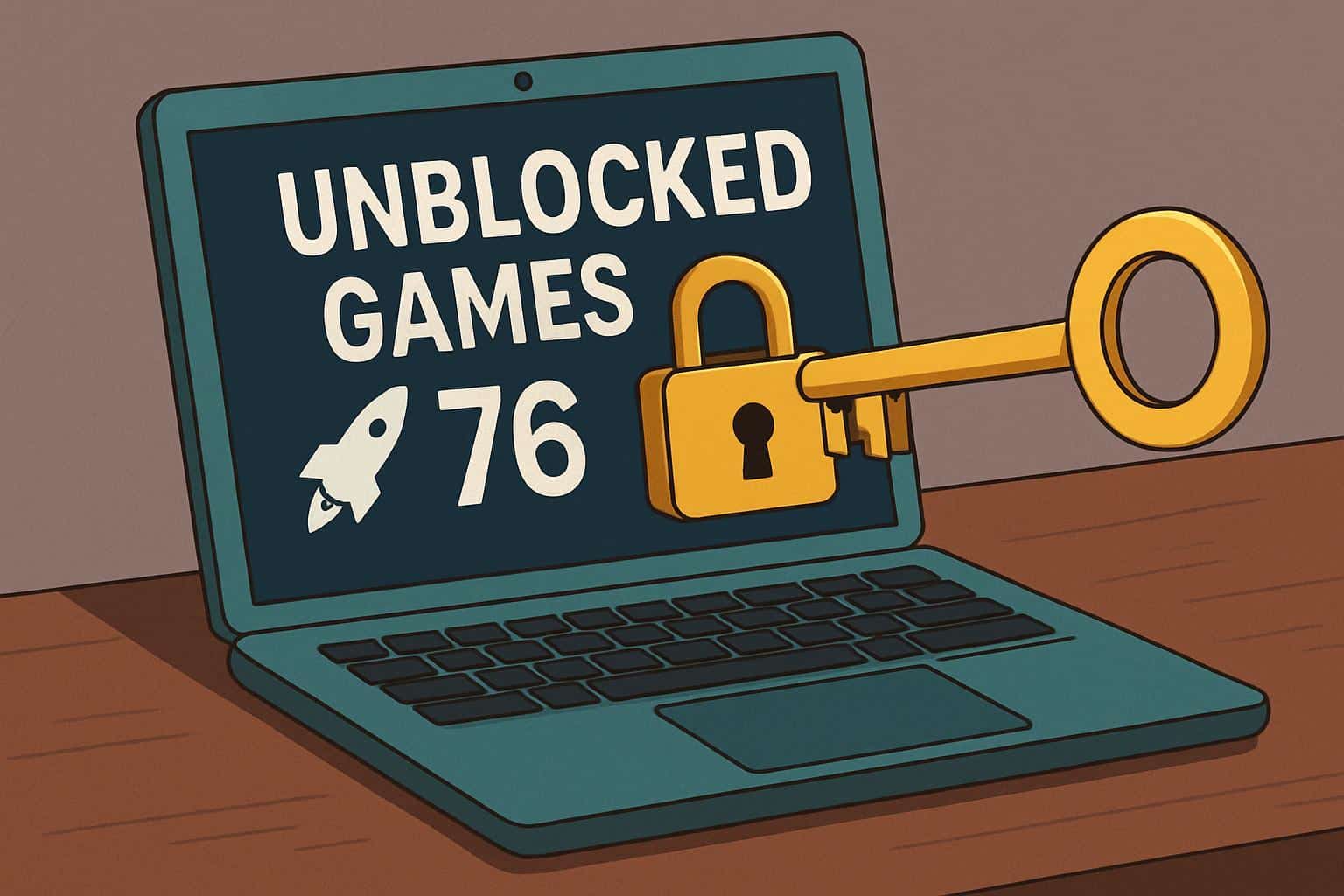
Keep it lightweight
HTML5 games are all over the map when it comes to using your device’s resources. When on battery or an older laptop, seek out 2D canvas games or simple puzzle titles. Save 3D WebGL games for when you have more power and a charger nearby. The lightness of the game allows for a flowing experience.
Try offline‑ready web games
Some browser games can run “install as app” (a Progressive Web App). If you see a message like “Install” or “Add to Home Screen,” it might grant some offline play and faster loading. This won’t get around any rules, but it can help save on bandwidth use and cut page clutter.
How to find good browser games without fake links
Hitting the first shiny button you see won’t get you to great games. Use intention instead of impulse.
Use smart search phrases
Search descriptively instead of using vague terms; tailor queries to your mood and device. Examples:
- “browser-based physics puzzle no download”
- “turn-based strategy free in browser”
- “2D platformer web game low CPU usage”
This kind of wording pulls cleaner results and fewer aggressive ad pages.
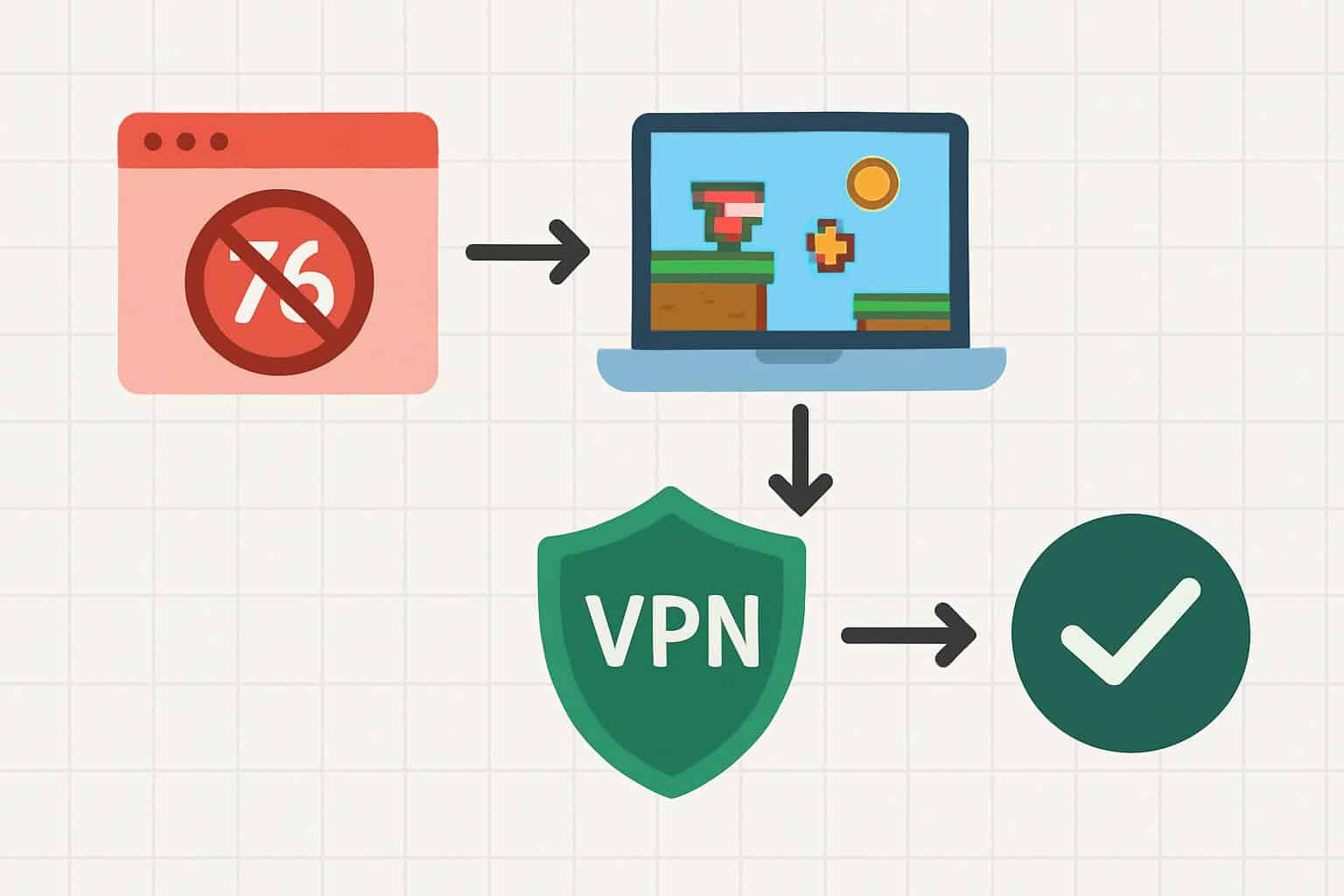
Spot red flags before you click
Do not navigate pages spangled with exaggerated download prompts, extraneous software, and excessive buttons. An actual browser game should load and be playable on the page—no installers required. If a web page requests irrelevant permissions (cameras, for example, to show you a simple puzzle), run away.
How To Improve Game Performance And Battery Life In Browser Games?
Little changes help you get more fun per minute and more minutes per charge.
Cut lag at its source
Shut intensive tabs (video calls, multi-tab streaming) before playing a game. If you have hardware acceleration enabled (and WebGL runs well) then keep it that way. On older systems, a simple 2D game can sometimes perform even better without additional visual effects.
Protect your battery
Dim your screen a bit; avoid max brightness and use windowed mode instead of full-screen on slower GPUs. For laptops and tablets, every 10% in brightness could be a few more solid minutes of play.
All That Privacy and Security You Actually Get
Incognito mode does not skirt network restrictions, nor does it hide traffic from a school or employer. It only avoids saving local history and cookies. Use it as you would on your device for personal privacy, but don’t expect to get away with anything. And don’t sign in to game sites using your school or work email — maintain two separate accounts.
If you’re ever asked to save unusual files, install extensions, or execute software for a “browser game,” don’t. View and play real unblocked-style games in the page. Extra software is a red flag.
A Simple Balancing Model: Playing the Limitations
The focus–play cycle
Work or study in 20-minute segments and play (if permitted) for 5 minutes. Short, predictable breaks help you stay refreshed rather than tumble down a rabbit hole. When the timer expires, close the tab — don’t let it hang around as a permanent temptation.
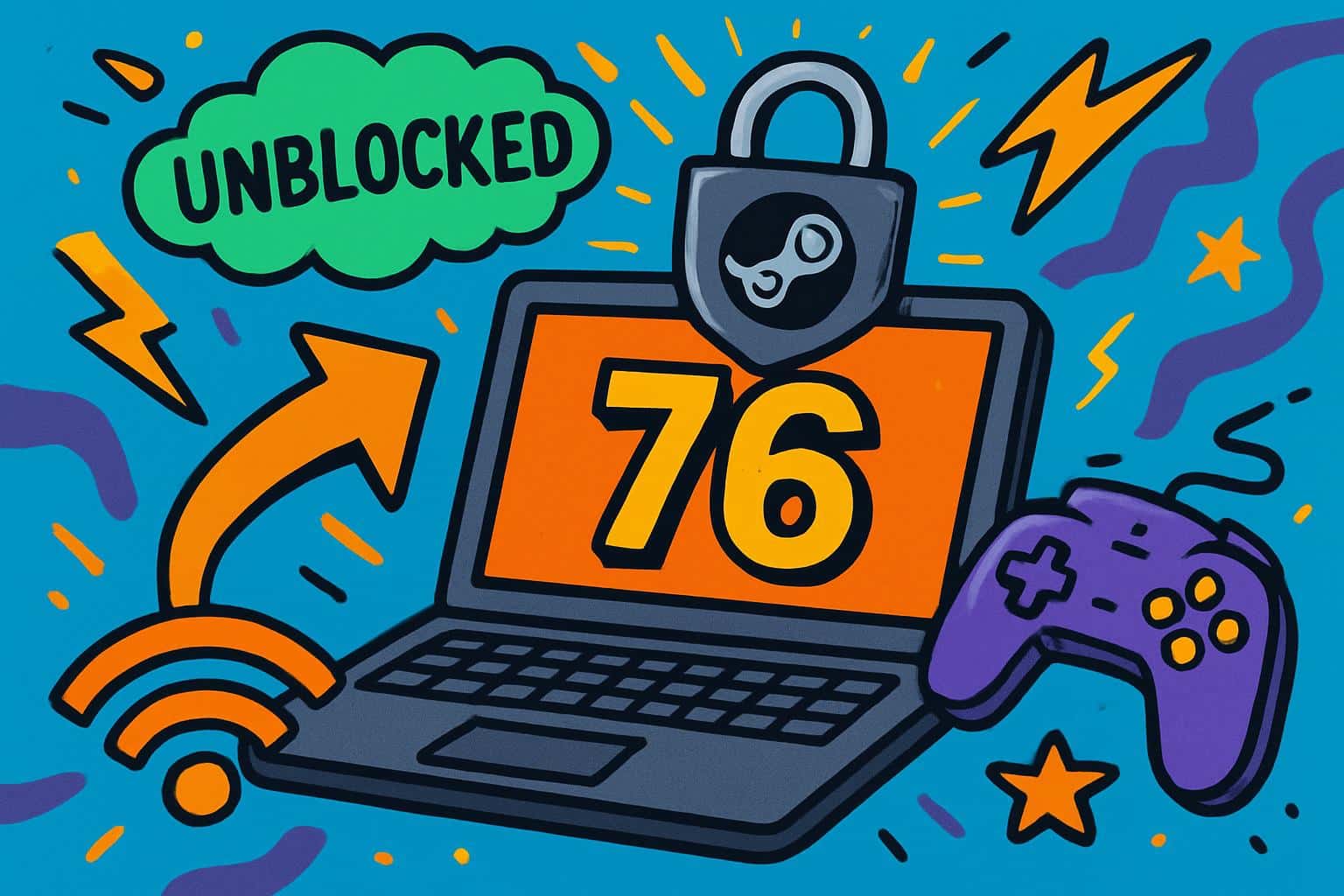
The three-minute exit checklist
Before you go back to work: close game tabs, switch browser profiles, and clear the last few minutes of browsing data from your play profile. This way, your main profile stays neat and your next session is zippy.
The “green light” test before you try it
Here’s a quick test to help you decide if you’re good to go.
- Policy: Can the network/device tolerate short gaming sessions?
- Location: Is play socially acceptable at this time and place?
- Privacy: Are you on a profile that is your own, with no vulnerable accounts open?
- Performance: Can your device run without overheating or stuttering?
If any are “no,” stop. Better to hold off than to chance policy or device headaches.
Common questions answered about unblocked web games
Is it acceptable to play in class or meetings? Only if it’s clearly permitted. Short games can also throw you off, and others, in attention.
What’s up with some pages titled “Unblocked Games 76” and others that are less smash-your-monitor–inducing? A lot of pages are duplicates of popular collections or have similar names. Quality and safety vary. Limit your visits to pages that load neatly in the browser, require few permissions, and don’t prod you to install software.
Will a private window do the trick and let me in on blocked games? No, private or incognito windows do not alter network policy; they simply don’t keep a local record of history.
What if a game is sluggish? Try lighter genres (puzzles, turn-based strategy), close heavy tabs, or update your browser. 2D canvas games perform very well on older devices; not so much for 3D WebGL games.
Bottom line: play responsibly and keep it lightweight
Getting on Unblocked Games 76 is less about circumventing challenges and more about determining the best place, time, and atmosphere to do so. Respect the network, keep your play profile separate, welcome clean-running simple games, and weave short, honest breaks into your day. Do that and those brief sessions will remain a fun, safe, low-stress joy.
Related Articles

